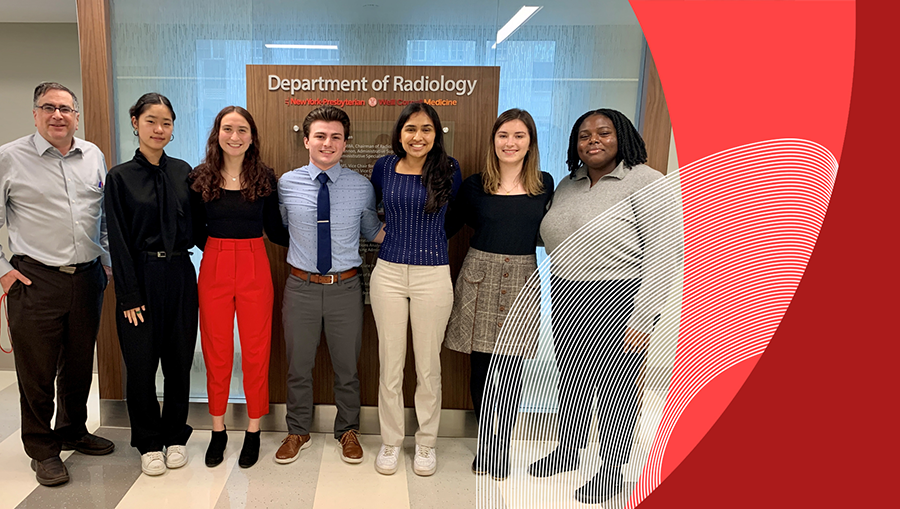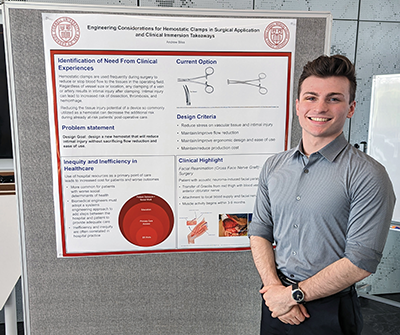Undergraduate Clinical Immersion Program
Inaugural Shuler Scholars Forge Undergraduate Clinical Immersion Program

Last fall the Meinig School launched the Shuler Scholars Clinical Immersion Program, a unique opportunity for undergraduates to experience first-hand the practices and professionals at Weill Cornell Medicine in New York City.
Funded by Beckie Robertson ’82 and Neil L. Robertson ’82, and named to honor the enormous contributions of Meinig School founding chair and professor Michael L. Shuler, the program positions undergraduates to fully grasp the role engineers play in the medical ecosystem and to understand the important contribution engineering makes to medicine.
"Scholars gain a deeper understanding of the relationship between medicine and engineering," said Meinig School director of undergraduate studies Steven Adie of this new immersion program. “The experience directly informs scholars’ final semesters and senior design project, as well as impacts their future education and careers.”
The program is for BME juniors and consists of two semesters of coursework with a two-week immersion at Weill Cornell Medicine in NYC in between. During immersion, the scholar cohort engages in needs-finding activities, both as preparation for their senior design projects and to encourage continued reflection on their immersion experience. They prepared and shared end-of-semester poster presentations with the BME community that detailed project proposals heading into senior year. This past May, the six inaugural scholars shared their experiences with the Meinig School Advisory Council at Weill Hall.
"Coming into this experience, I was unsure whether I wanted to pursue medical or graduate school," said Justine Burke, one of the six inaugural scholars. "This program solidified my decision to go to medical school, especially by seeing first-hand the interconnectedness of engineering in medicine. The experience was also incredibly eye opening to the disparities within the healthcare system, which is where I believe engineering low-cost medical technology could make a big impact."

Advisory council members were similarly impacted. "I was thrilled to see the outcome of this first clinical immersion experience," said Virginia Giddings, Ph.D., Meinig School Advisory Council chair and vice president exploration for Edwards Lifesciences. "The insights students gain in the clinical setting are a critical part of their training to solve the most impactful needs of patients. We look forward to finding ways to bring this experience to a larger group of students in the future."
Upon completion of the program, notes undergraduate coordinator Sharon Kaplan, scholars will be able to summarize the role of engineering and technology in clinical practice; recognize opportunities for engineers to collaborate with physicians and other medical practitioners; identify clinical needs that can be addressed by engineering solutions; contribute solutions for engineered technology within the medical/clinical setting; and associate BME curricular concepts with clinical practices. Scholars receive academic credit for the experience and serve as mentors to the following year’s scholars.

